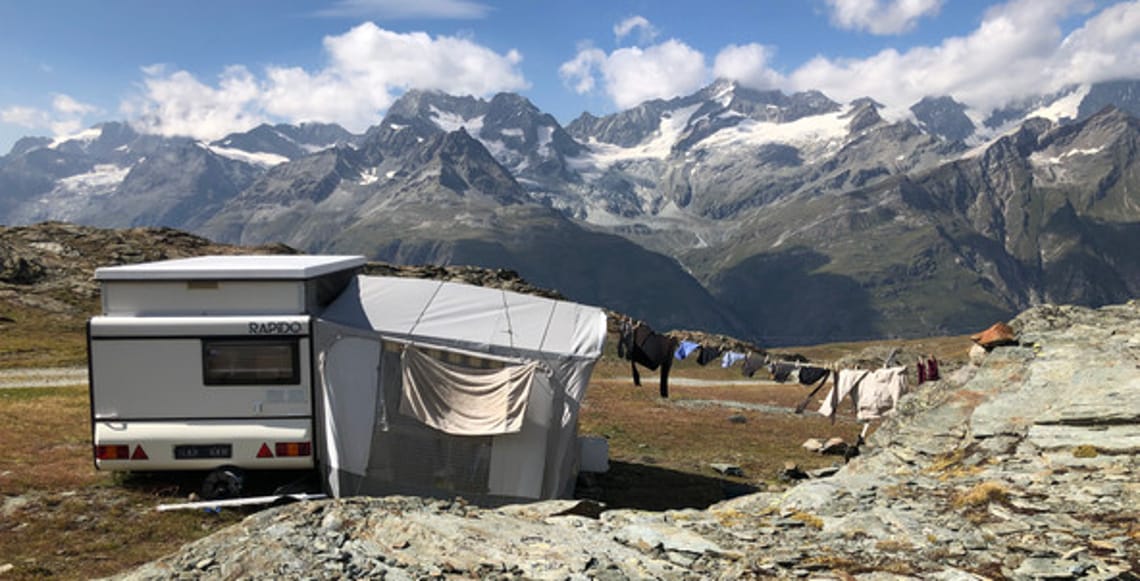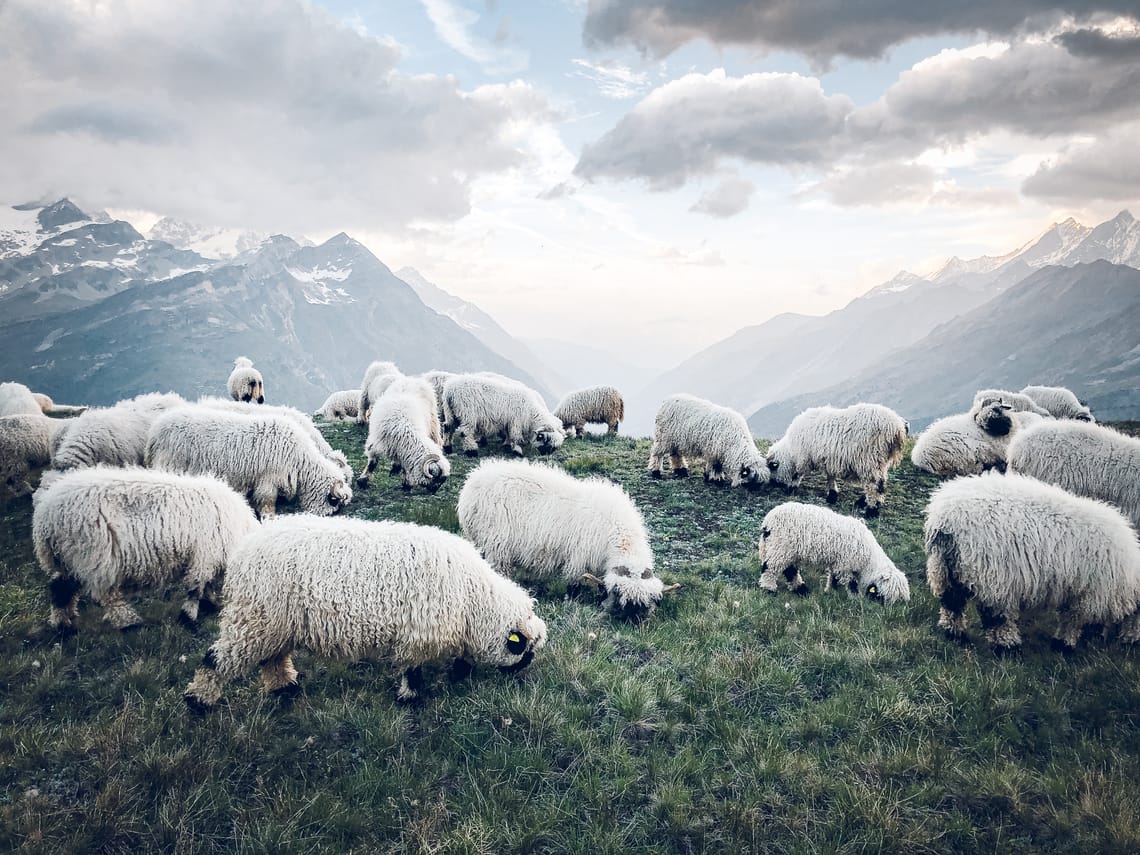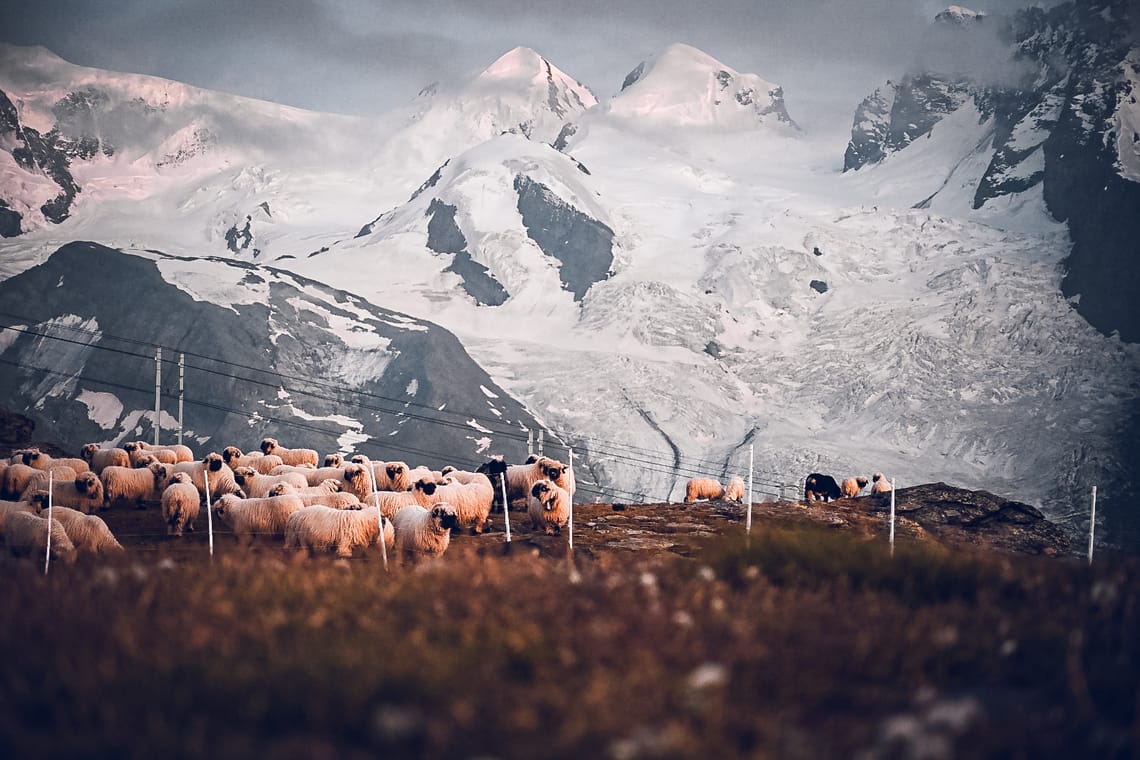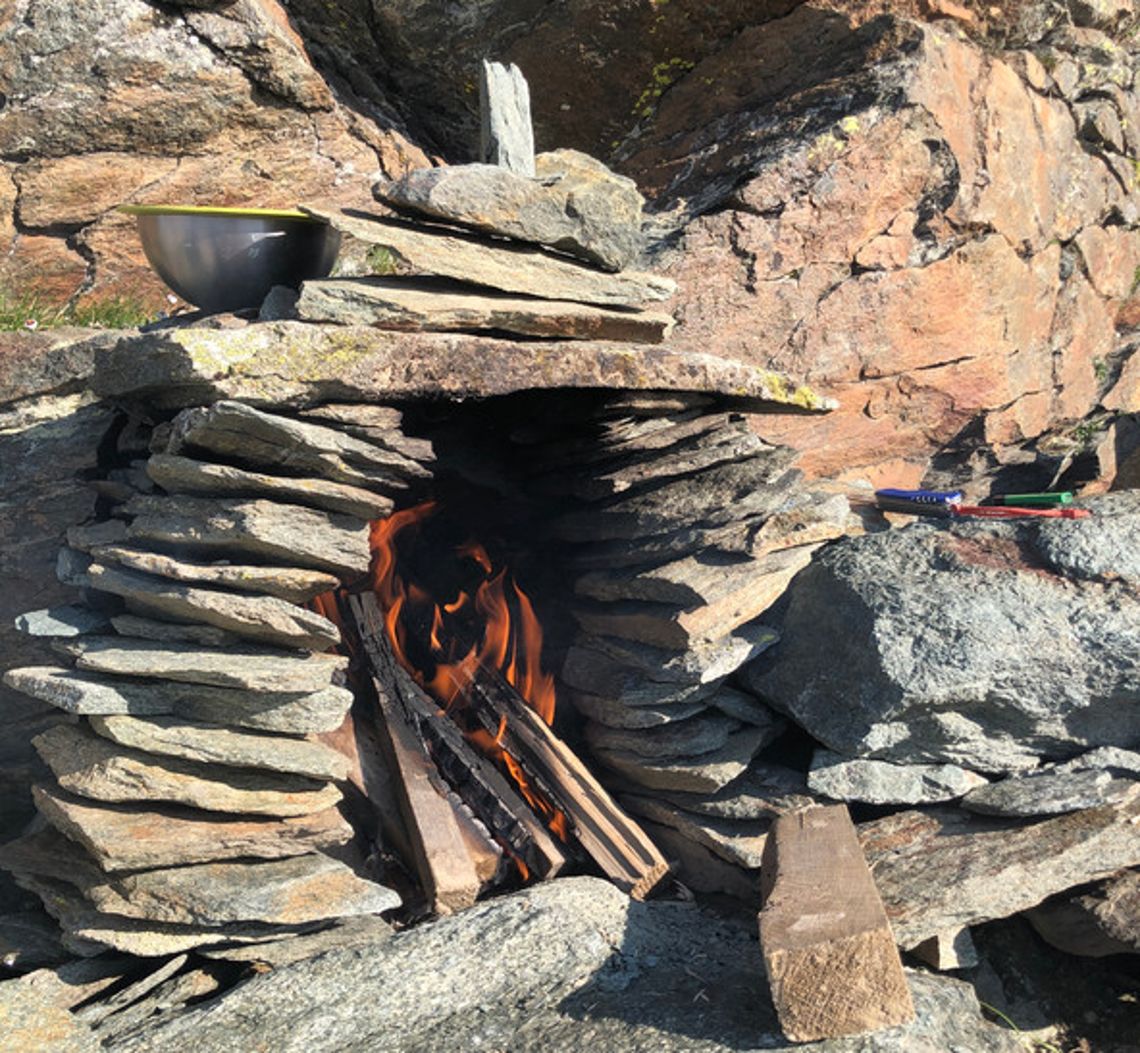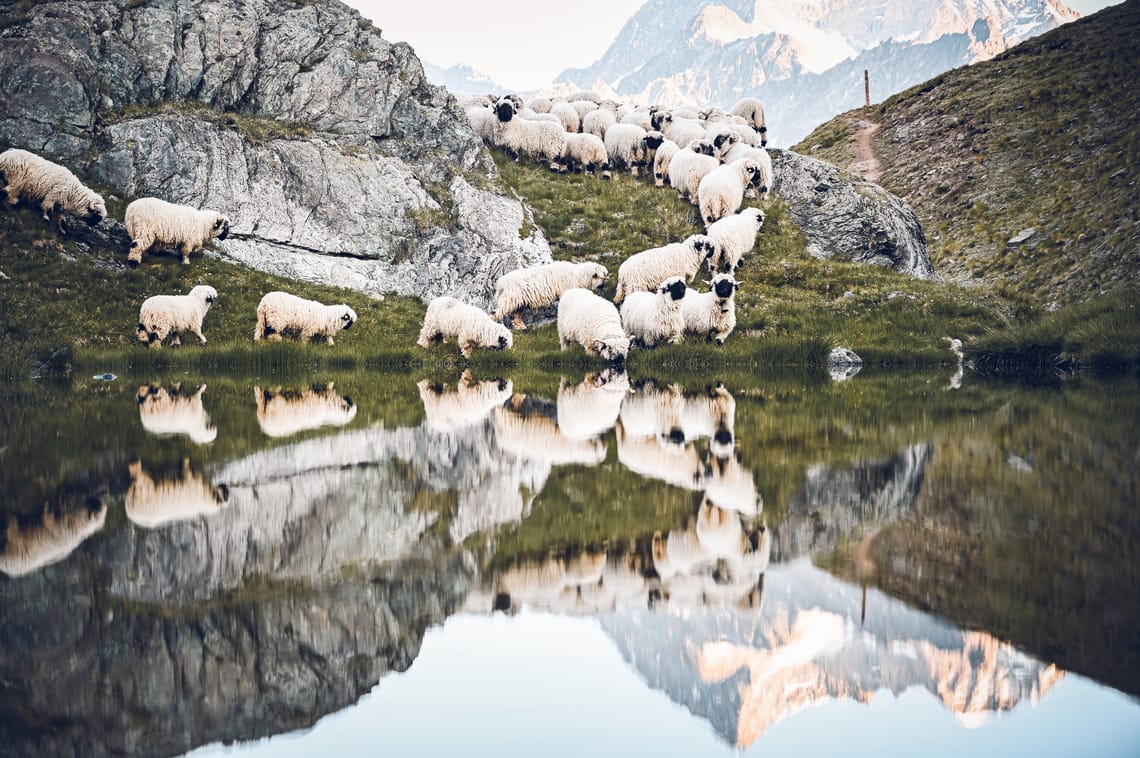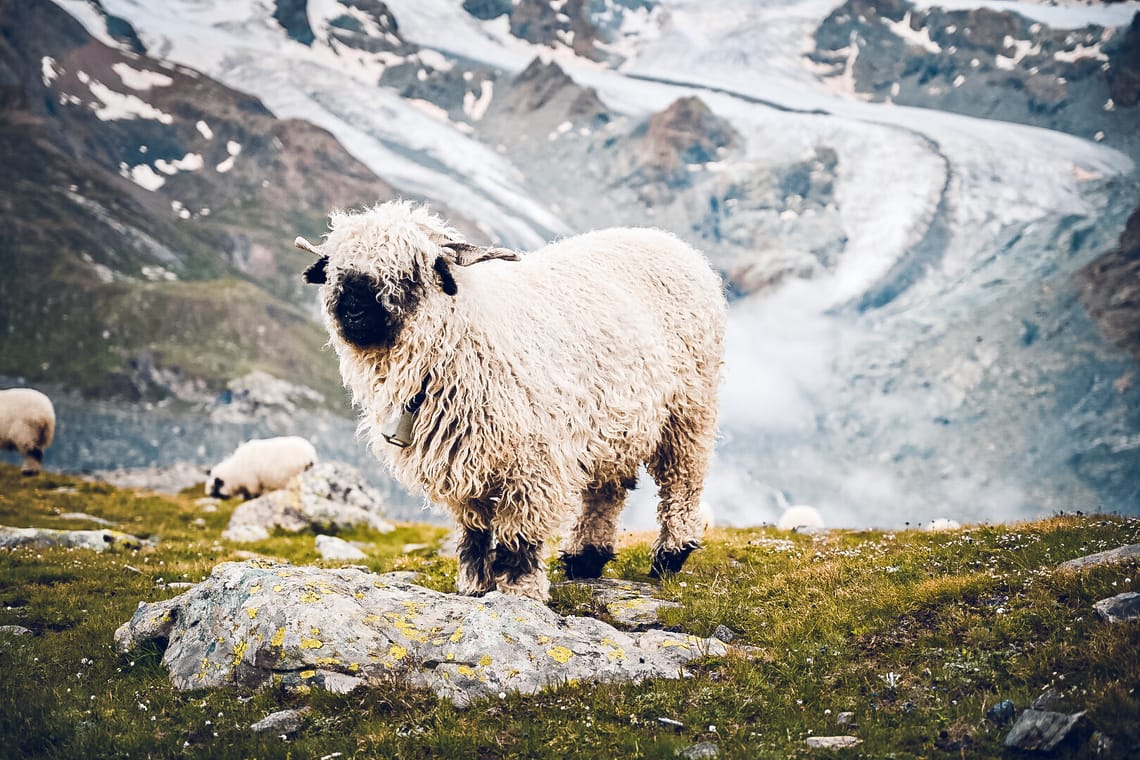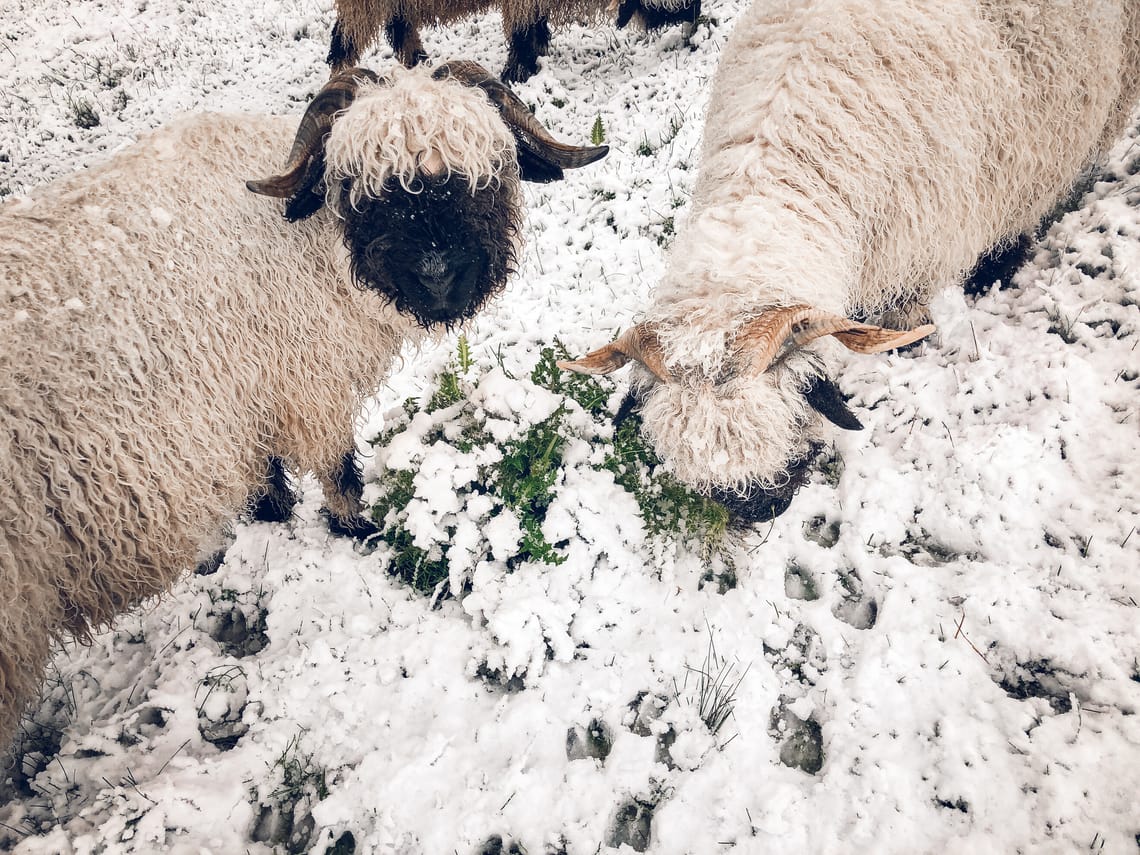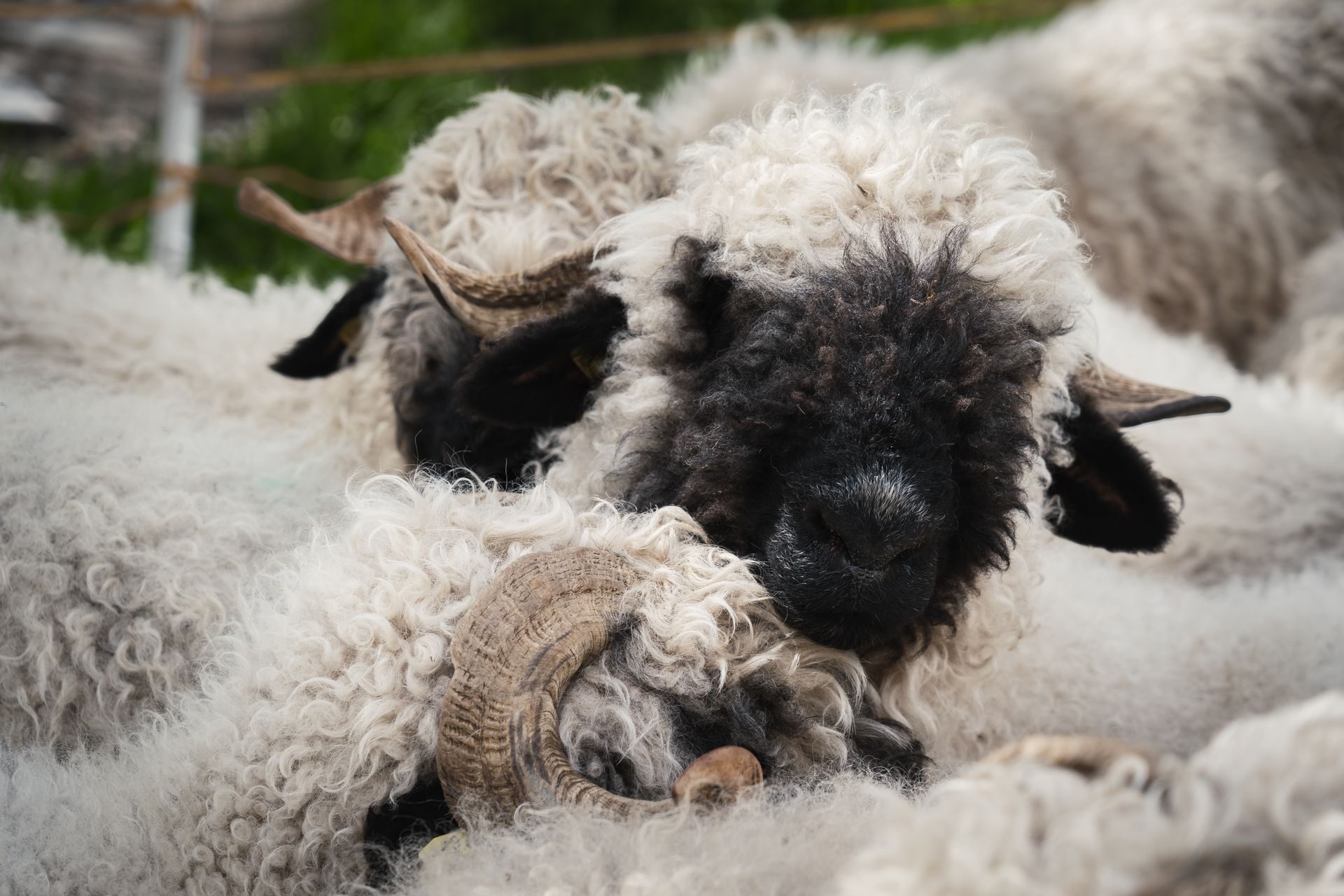
Daily life of Deborah, our shepherdess on the Gornergrat
Deborah reports on everyday life as a shepherdess on the alp on the Gornergrat.
I have been through so much this summer, unbelievably unique moments, moods, encounters and scenes. Wonders, large and small - and of course a lot of challenges: the hardships of daily life, difficult moments with the sheep and the turbulent times on the mountain, when nature goes crazy and four solid walls and a strong roof over my head would have been more than welcome.
A summer of adventure at almost 3,000 metres above sea level
The difference from 2,500m on the Riffelberg to nearly 3,000m is breath-taking, but equally a huge challenge. Up here the air is very thin and it’s always cold. The sun only warms you up for a while every day. Mostly I’m out wearing a thick, woolly pullover to keep me warm while I walk and the cold winds are blowing down from the glacier.
In the mornings the grass is often frosted over. I am delighted that I get the electricity, which serves the ski pistes in winter, in my caravan to heat up a small area. The climate is wild and often cold, I don’t have running water or a bathroom, in fact no luxuries at all.
I get water from the chairlift valley-station a good 10 minutes away and every last drop is precious.
The sheep think the ‘Rosenritz’ ridge is a great place to hang out and they easily come up of their own accord – it’s part of their daily grazing rhythm. Downwards in the morning to warm up but under shade and then upwards in the evening. The sheep like to spend the night in a high place and if they haven’t come to the Rosenritz I will find them on the top of a hill above the Riffelsee lake.
It’s my job to accompany them 24 hours a day in all weathers, 7 days a week. I don’t always do this in person otherwise I wouldn’t survive the conditions up here. In the morning I lead them out of their night-pen, I visit them around midday and again in the afternoon as part of the ‘Meet the Sheep’ programme. I look for them on the Riffelberg in the evening and then I herd them (without a dog!) to their night-pen where they spend the night, protected from wolves. During the day I constantly check their location with GPS but when it’s foggy I have to spend more time with them even though it’s colder and damper then. At night I sleep just a few metres away from the sheep in my caravan and listen out for the sheep’s bells to warn me should a wolf appear when I would have to sound an alarm.
The flock becomes tamer by constantly being with me and they come from far away when they hear me call. Some of them are so devoted to me that when I recognise them from a distance I can call them by their names. Then they come towards me and call back.
From stunning sunsets to pitch black, starry skies
Up here the storms that come are less wild than those on the Riffelberg. As the weather calms I can enjoy the most amazing moods: a pitch black sky full of stars and the entire Milky Way.
A lot of my friends visit me and these encounters enrich my whole summer: sometimes we bake a pizza in the brick oven or we grill over the open fire which I have built next to my caravan. Occasionally I bake my own bread in the oven which is like a festival because fresh bread on top of a mountain is extremely rare!
Finding time for creativity
I gather and dry mountain herbs and sometimes I undertake a long walk across the mountain to get to know it better. I collect colourful stones from which I make a pigment for paint. I often draw or write in my sketch book.
Towards the end of the summer I look for wafer-thin slates which I take to my caravan. There, I grind the collected stones to powder and create colour paints from them. Using the slates as a canvas I can paint the Gornergrat panorama with my home-made pigments and create a wonderful series of work which is showing in the Sala Segantini in Savognin in summer 2022.
Who is a shepherd/shepherdess?
‘Meet the Sheep’ is becoming normal practice and it’s exciting, pleasant and enjoyable. Some of my visitors are so special that within a short time we have struck up a friendship. Other visitors are so delighted to meet these curly-haired, trusting sheep that they burst into tears or tell me about their whole life, while other visitors stay in contact with me for many weeks and send me their photos of the Gornergrat and the sheep.
As the summer progresses, minding the sheep becomes more arduous. In July 2021 it snowed three times, and it snows at least once every month. The grass turns red and dries and although it is still good nourishment for the sheep they walk further and often form small groups together. I’m really pleased when my boyfriend visits me and helps with the household chores in the caravan by fetching water and cooking. It’s easier up here when there are two of you. If I have problems with the sheep he also gives me a hand.
September approaches: herding the sheep as night falls
The days shorten and get colder and the grass turns brown after the first night-frosts. All of a sudden the sheep are less happy to go higher and spend the afternoons on the Riffelberg again.
Shepherding gets harder very quickly, and searching for the sheep is sometimes really difficult. Sometimes it’s dark by the time I have them all safely in their pen. Summer is on the way out and the days fast become shorter.
My lovely view will soon be covered in snow and although I’d love to stay up here longer the life up here becomes less enticing. In fact there is snow when we close down the pen and move down towards the Riffelberg.
On the Riffelberg when, in the middle of September, there is a heavy snowfall then the season is finally finished and I guide my flock back to the valley where they will spend the winter in a barn and when the meadows are free of snow, will graze around the village until next spring.
More stories like this?
Sign up for the newsletter and receive news and background stories 4-6 times a year.
